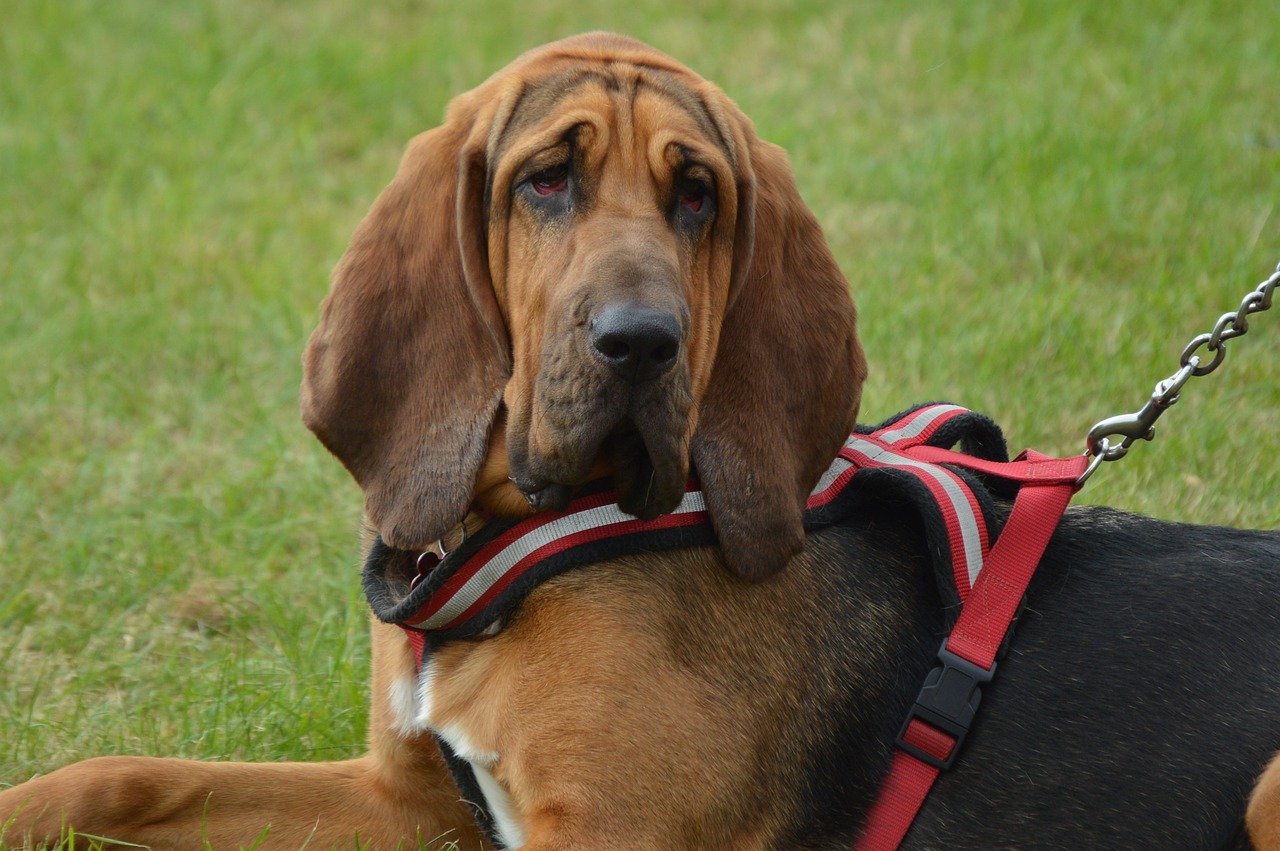The Bloodhound, known for its droopy ears, wrinkled skin, and exceptional sense of smell, is a dog breed that has intrigued many throughout history. Renowned for their tracking abilities, Bloodhounds have played significant roles in search and rescue missions and even criminal investigations. But, when it comes to their temperament, are Bloodhounds aggressive? Let’s dive deep into understanding the behavior of Bloodhounds and explore the factors that can influence their temperament.
The Natural Temperament of Bloodhounds
By nature, Bloodhounds are friendly, curious, and gentle creatures. They are known to be good-natured and get along well with children and other animals. Typically, aggressive behavior is not inherent to Bloodhounds. Instead, they exhibit a deep loyalty and affection to their families, often forming strong bonds with their owners.
Bloodhounds and Their Training
As with any dog breed, training plays a pivotal role in shaping the behavior and temperament of Bloodhounds. Given their keen sense of smell, Bloodhounds can sometimes become overly enthusiastic or distracted by scents. This is where training is crucial:
- Early Socialization: It’s essential to expose Bloodhounds to various environments, sounds, people, and animals at a young age. This ensures that they grow up to be well-rounded and adaptable dogs.
- Consistency: Bloodhounds are intelligent but can be a bit stubborn. Consistent training methods, with an emphasis on positive reinforcement, can ensure that they understand and follow commands, reducing the likelihood of unwanted behaviors.
Environmental Influences on Bloodhound Behavior
The environment in which a Bloodhound grows up and lives can significantly influence its behavior:
- Stimulating Environments: Bloodhounds are active and intelligent dogs. They require an environment that provides them with mental and physical stimulation. A lack of such stimulation can lead to boredom, and boredom can sometimes manifest as destructive or aggressive behavior.
- Safety and Comfort: Bloodhounds, with their gentle nature, thrive in environments where they feel safe and loved. Stressful or hostile environments can cause anxiety in Bloodhounds, which can occasionally lead to reactive behaviors.
Health and Behavior in Bloodhounds
Just like humans, Bloodhounds’ health can influence their behavior. Health issues, pain, or discomfort can cause a usually calm Bloodhound to display aggressive tendencies:
- Routine Vet Checks: Regular veterinary check-ups are vital to ensure that your Bloodhound is in good health. Early detection of potential health issues can prevent behavioral problems down the line.
- Dietary Needs: Ensuring that Bloodhounds receive a balanced diet can also play a role in maintaining good health and, by extension, a pleasant disposition.
Common Misconceptions About Bloodhounds
Due to their imposing size and deep bark, Bloodhounds can sometimes be perceived as aggressive or threatening. However, it’s essential to differentiate between a Bloodhound being protective or alert and genuinely aggressive behavior. Their loyalty to their family might make them wary of strangers, but with proper introduction and socialization, they usually warm up quickly.
Conclusion: Are Bloodhounds Aggressive?
By nature, Bloodhounds are not aggressive. They are affectionate, gentle, and friendly dogs that thrive in loving environments. Training, socialization, health, and environment play critical roles in shaping the behavior of Bloodhounds. With proper care, love, and attention, Bloodhounds make loyal and loving companions for families and individuals alike.
Frequently Asked Questions About Bloodhounds & Aggression

1. Are Bloodhounds naturally aggressive dogs?
Bloodhounds are not naturally aggressive. By nature, they are friendly, curious, and gentle creatures. They are known to be good-natured and usually get along well with children and other animals.
2. How does early training influence the temperament of Bloodhounds?
Early training plays a significant role in molding a Bloodhound’s behavior. Proper training and early socialization ensure that Bloodhounds grow to be well-rounded and adaptable dogs, reducing any unwanted or aggressive behaviors.
3. Can a lack of stimulation lead to aggression in Bloodhounds?
Yes, a lack of mental and physical stimulation can lead to boredom in Bloodhounds. Bored dogs can sometimes manifest destructive or seemingly aggressive behaviors. Therefore, it’s essential to provide them with regular activities and challenges.
4. How do Bloodhounds usually react to strangers?
While Bloodhounds are loyal to their families and might be wary of strangers initially, they typically warm up quickly with proper introduction. It’s essential to differentiate between a Bloodhound being protective and genuinely aggressive behavior.
5. How can health issues affect the temperament of Bloodhounds?
Just like any other dog, health issues, pain, or discomfort can lead to behavioral changes in Bloodhounds. A typically calm Bloodhound might display aggressive tendencies if feeling unwell, making regular veterinary check-ups crucial.
6. Is the Bloodhound’s size a factor in them being perceived as aggressive?
Yes, due to their imposing size and deep bark, Bloodhounds can sometimes be wrongly perceived as aggressive or threatening. However, their nature is typically more gentle and friendly than aggressive.
7. How does the environment play a role in a Bloodhound’s behavior?
Bloodhounds thrive in environments where they feel safe and loved. Stressful or hostile surroundings can cause anxiety, which can occasionally lead to reactive behaviors in the dog.
8. How beneficial is adopting a Bloodhound from a rescue or shelter?
Adopting a Bloodhound from a rescue or shelter is highly beneficial. Not only does it give a dog a second chance at a loving home, but rescue dogs often come with some basic training, and shelters provide insights into the dog’s temperament and behavior.
9. Can Bloodhounds get along with other pets in the household?
Yes, with proper introduction and socialization, Bloodhounds can get along well with other pets in the household. Their naturally gentle disposition makes them compatible with other animals.
10. Are there any particular training techniques effective for Bloodhounds?
Consistent training methods, with an emphasis on positive reinforcement, are effective for Bloodhounds. Given their occasional stubborn streak, patience and consistency are key to training them effectively.
 Toledo, United States.
Toledo, United States.
